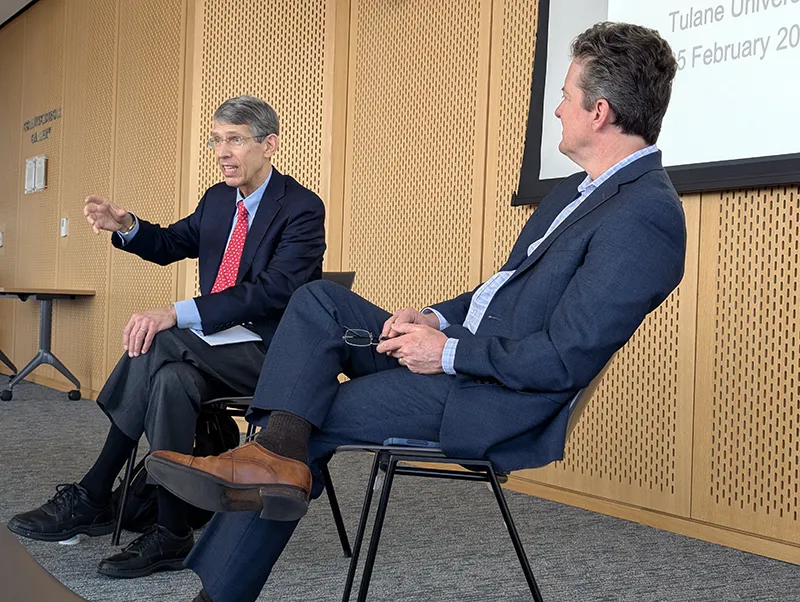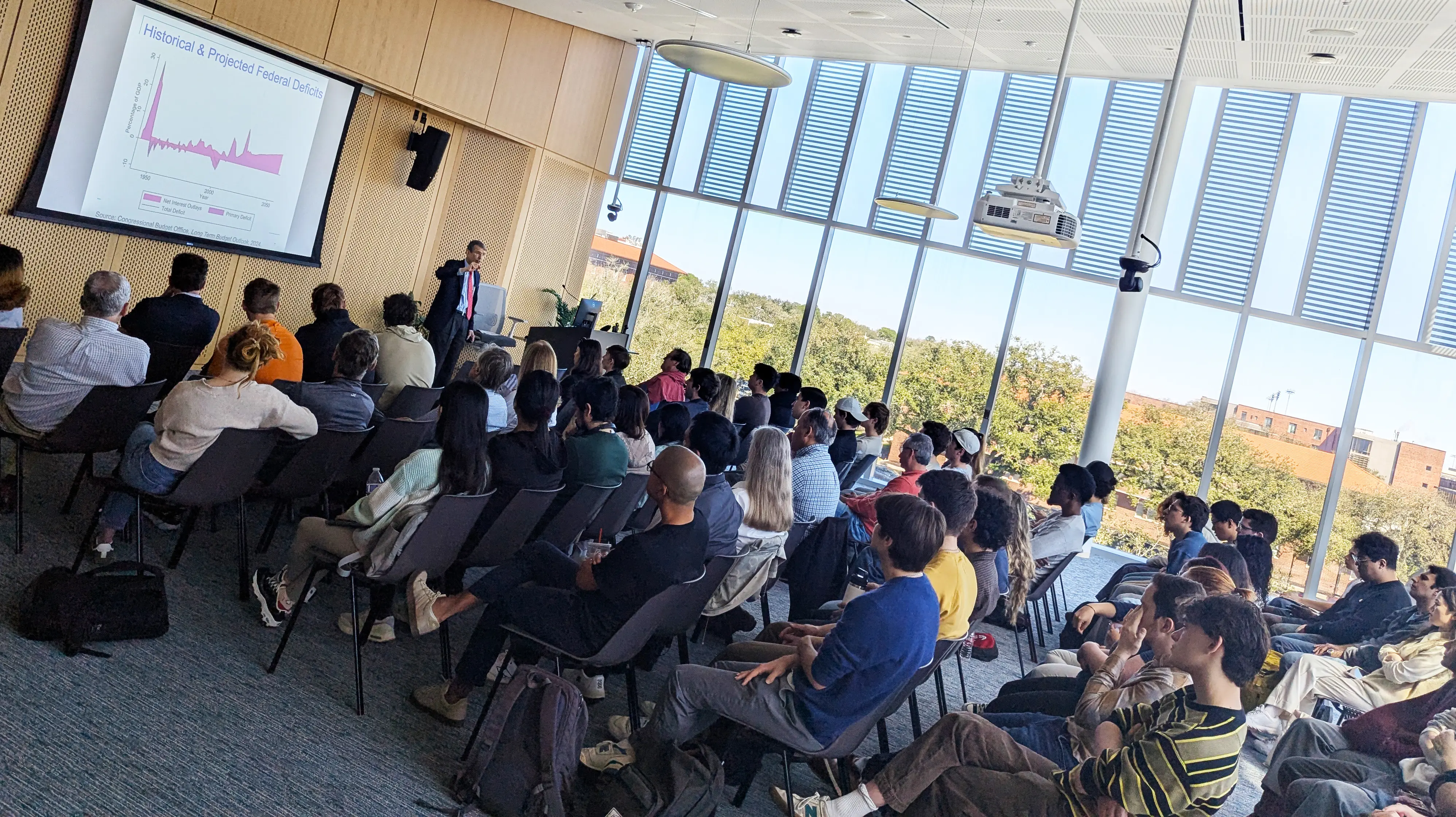
In March, both undergraduate and graduate economics students had the opportunity to attend the highly anticipated lecture by the prestigious James Poterba, who was invited to campus as the 2025 Tulane Distinguished Lecturer in Economics. Poterba is the Mitsui Professor of Economics at MIT and the president of the National Bureau of Economic Research, a non-profit research organization with more than 1700 affiliated economists. His lecture, titled "Debt, Deficits, and Sustainability: The US Fiscal Challenge," delved into our country’s rising debt and its potential to have widespread repercussions in the near future. We quickly realized that this was not just a lecture about niche economic theories, but an urgent and timely lesson that resonated well beyond our fields of study.
Poterba began his lecture by outlining the national debt crisis and its potential consequences. Our current net debt of $28.3 trillion — at least 110% of our Gross Domestic Product (GDP) — Poterba explained, is projected to hit 180% by 2055 if nothing changes. “We are on a trajectory at the moment that is not sustainable,” he warned us. Yet no one is panicking. Poterba called this the “Cassandra Problem,” where economists have sounded the alarm, but — because “the wheels haven’t fallen off the economy” yet, we continue as usual, “spending more than we’re collecting in taxes” and increasing debt. With more debt comes increased interest payments, which only leads to more borrowing. The longer we wait to make the change, the harder the cycle is to escape.
As the national debt surges, the government must raise interest rates in order to attract lenders. Not only does this make the debt harder for the government to pay back, but the higher returns draw investment away from the private sector and into government bonds. Less money flowing into businesses slows economic growth; as Poterba explains it, “The ultimate cost of the higher debt stock is that we have displaced capital that would have otherwise been productive capital.”
The massive debt makes the entire system more delicate, growing the potential for a recession. To address this issue effectively, Poterba advised that the government increase taxes and decrease federal spending. While these changes would create immediate financial hardship for everyday Americans, postponing action only increases the risks and the economic burden.
At the end of the lecture, we asked Dr. Poterba if non-economics majors should learn about or care about this issue. The answer was an emphatic yes. The economy has a massive impact on real people's lives, it is not just theoretical factors and equations. The older generation, politicians, and bond owners are not the ones who will face the economic consequences; it is young people like us — students growing up in this increasingly destabilized economy — who will bear the burden. “Folks in the cohort that most of you represent, who are going to be paying taxes in the US for decades to come — you're the folks who are going to pay these bonds off.” He painted the scenario where in 10 years one of us is trying to buy a house, only to face interest rates that double overnight because this issue has been ignored. He emphasized that we can’t trust politicians alone to fix this, but we must understand and create pressure for change as young people. This is not a lesson for economists, this is a warning for society — the national debt is getting out of control, leaving us young adults in a very vulnerable position.
We attended the guest lecture knowing this prestigious professor would heighten our economic perspective and aid our studies. However, what we did not expect was a lecture that so clearly connected economic theory to our personal lives, helping us see these issues not just as economic students but as young adults who will face the consequences of our national debt. We are also both Environmental Studies majors and often think about our sustainability. This brought the same lens of sustainability onto our economic environment, bridging our interests across several dimensions and then applying it to a tangible impact on all of our futures.

A packed hours for the 2025 Tulane Distinguished Lecture in Economics, sponsored by The Murphy Institute and the School of Liberal Arts Economics Department.

